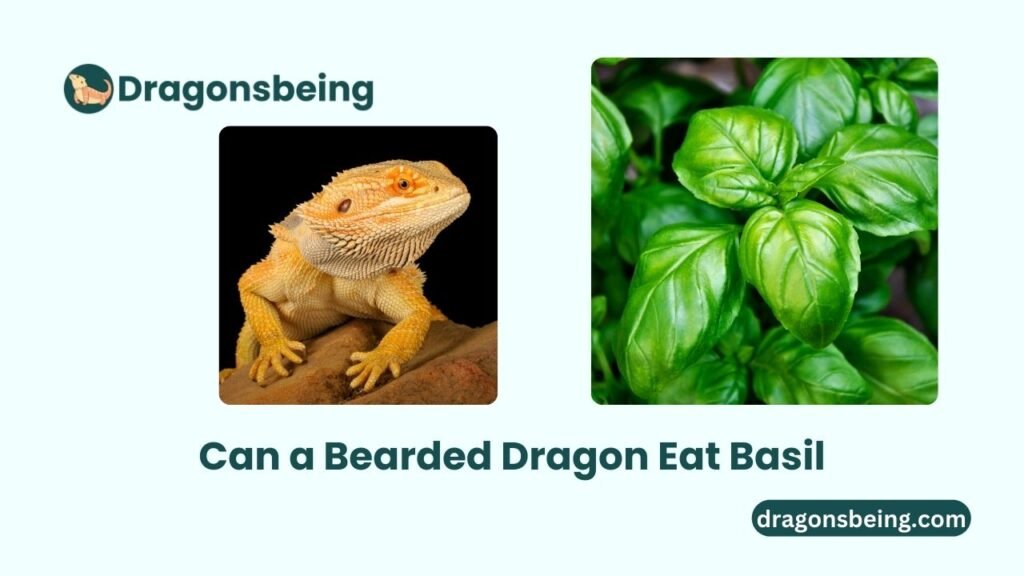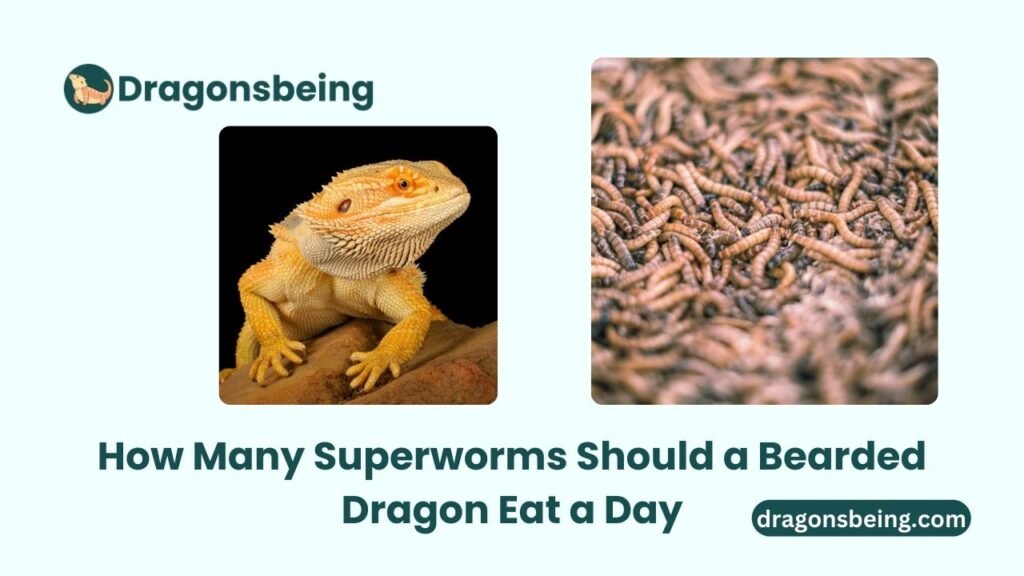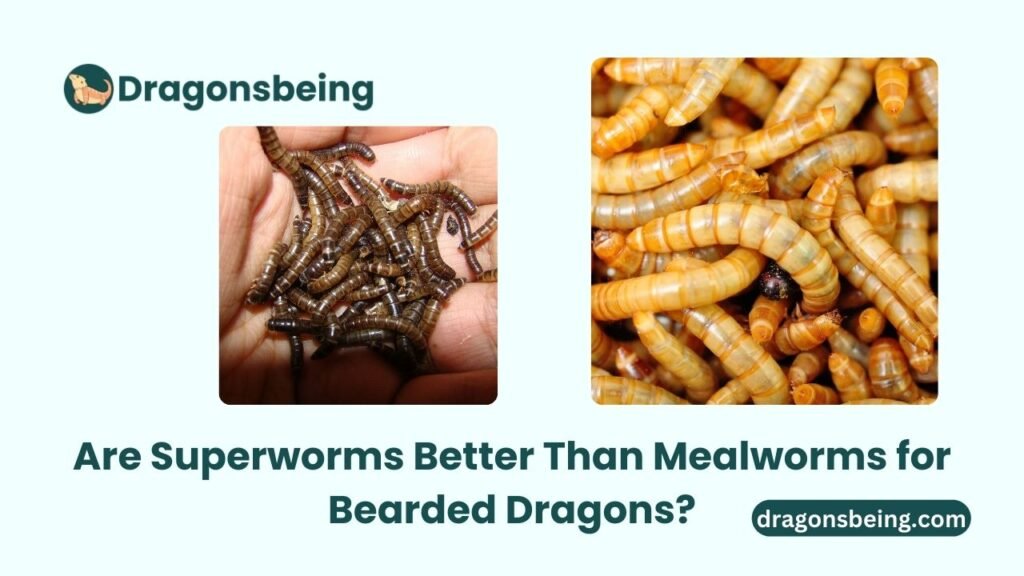Yes, bearded dragons can eat basil in moderation. This herb offers some nutritional benefits but should not be a staple food.
Bearded dragons are popular pets known for their unique dietary needs. A balanced diet is essential for their health and well-being.
Vegetables, fruits, and protein sources make up their meals. Basil, a fragrant herb, can be included in their diet occasionally.
It provides vitamins and minerals that contribute to overall health. However, bearded dragons should not rely on basil as a primary food source.
Instead, it should complement a varied diet. Always wash herbs thoroughly before serving.
Understanding what your bearded dragon can eat ensures they remain happy and healthy. Proper nutrition leads to a longer, more vibrant life for these fascinating reptiles.
Basil: A Nutritional Overview

Basil is a popular herb known for its unique flavor. It offers various nutrients beneficial for many pets. Bearded dragons can enjoy basil in moderation.
Let’s explore the nutritional benefits of basil for your scaly friend.
Vitamins And Minerals In Basil
Basil contains essential vitamins and minerals. These nutrients support the overall health of bearded dragons.
| Nutrient | Benefit |
|---|---|
| Vitamin A | Promotes healthy eyesight and skin. |
| Vitamin K | Supports bone health and blood clotting. |
| Calcium | Essential for strong bones and teeth. |
| Iron | Important for healthy blood function. |
Antioxidant Properties
Basil is rich in antioxidants. These compounds protect against cell damage. Antioxidants help reduce inflammation in the body.
- Flavonoids: Combat oxidative stress.
- Essential oils: Support immune function.
- Beta-carotene: Promotes overall health.
Including basil in your bearded dragon’s diet can offer these benefits. Always serve it fresh and in small amounts. Monitor your pet for any reactions.
Feeding Basil To Bearded Dragons
Bearded dragons can enjoy a variety of greens. Basil is one herb that many owners consider. It has some nutrients and flavors that can appeal to your pet. Understanding how to feed basil safely is essential.
How To Introduce Basil
Introducing basil to your bearded dragon’s diet requires care. Follow these steps:
- Start with a small amount of fresh basil.
- Wash the basil thoroughly to remove any pesticides.
- Chop the basil into small pieces for easy consumption.
- Observe your bearded dragon’s reaction.
Watch for any signs of discomfort. Signs may include refusal to eat or changes in behavior.
Recommended Portions
Feeding basil in moderation is key. Here are some guidelines:
| Age of Bearded Dragon | Recommended Basil Portion |
|---|---|
| Juvenile (0-6 months) | 1-2 small leaves |
| Sub-Adult (6-12 months) | 2-4 small leaves |
| Adult (1 year+) | 3-5 small leaves |
Always mix basil with other vegetables. This provides a balanced diet. Variety is essential for your bearded dragon’s health.
Potential Benefits Of Basil For Bearded Dragons
Basil offers several benefits for your bearded dragon. This aromatic herb is not just tasty. It can enhance their health too. Here are some key benefits:
Digestive Health
Basil can improve a bearded dragon’s digestive system. Its high fiber content aids digestion. Healthy digestion leads to better nutrient absorption. Here are some digestive benefits:
- Reduces constipation
- Encourages regular bowel movements
- Helps break down food efficiently
Immune System Boost
Basil is rich in vitamins and minerals. These nutrients support a strong immune system. A healthy immune system helps fight off diseases. Here’s how basil boosts immunity:
| Nutrient | Benefit |
|---|---|
| Vitamin A | Supports vision and skin health |
| Vitamin C | Enhances immune response |
| Calcium | Strengthens bones and muscles |
Incorporating basil in moderation can be beneficial. Always wash it thoroughly. Avoid excessive amounts to prevent digestive upset. Monitor your bearded dragon’s reaction to new foods.
Considerations And Precautions
Feeding basil to your bearded dragon can be safe, but some important factors exist. Understanding these considerations helps ensure your pet stays healthy. Always prioritize their well-being with safe feeding practices.
Organic Vs Non-organic Basil
Choosing the right type of basil is crucial. Organic basil is often safer for your bearded dragon. Here’s a comparison of both:
| Type | Benefits | Risks |
|---|---|---|
| Organic Basil |
|
|
| Non-Organic Basil |
|
|
Signs Of Allergic Reactions
Watch your bearded dragon for any signs of allergic reactions. Quick identification is key to ensuring their health. Common signs include:
- Swelling around the mouth
- Redness on the skin
- Vomiting or diarrhea
- Loss of appetite
- Lethargy or unusual behavior
If you notice any of these symptoms, stop feeding basil immediately. Consult your veterinarian for guidance. Keeping your bearded dragon safe is your top priority.
Alternative Herbs For Bearded Dragons
Bearded dragons enjoy a variety of herbs. Basil is popular but not always suitable. Other herbs can provide essential nutrients and flavors. Let’s explore safe alternatives for your bearded dragon.
Safe Herbs List
- Parsley – Rich in vitamins A and C.
- Cilantro – Great for digestion and hydration.
- Dill – Contains antioxidants.
- Thyme – Good source of vitamins and minerals.
- Oregano – Offers antibacterial properties.
Herbs To Replace Basil
Consider these herbs as substitutes for basil:
- Parsley – A safe, nutritious option.
- Cilantro – Adds a fresh flavor.
- Dill – Provides essential nutrients.
- Thyme – Adds aroma and flavor.
- Oregano – Packed with health benefits.
These herbs can enhance your bearded dragon’s diet. Always introduce new foods slowly. Monitor your pet for any reactions. Enjoy experimenting with different flavors!
Conclusion: Integrating Basil Into Your Pet’s Diet
Basil can be a tasty addition to your bearded dragon’s meals. This herb offers nutrients and flavors that can enhance their diet. It’s important to introduce it slowly. Monitor your pet’s reaction to it.
Balanced Diet Importance
A balanced diet is crucial for your bearded dragon’s health. Basil provides vitamins and minerals. Here are some benefits of adding basil:
- Rich in antioxidants
- Good source of vitamins A, C, and K
- Supports immune function
- Enhances digestion
Combine basil with other greens and vegetables. Keep the diet diverse. This helps prevent nutritional deficiencies. Always wash basil thoroughly before serving it.
Monitoring Health Changes
After adding basil, watch for any health changes. Look for signs of allergies or digestive issues. Key signs to monitor include:
| Signs | What to Do |
|---|---|
| Diarrhea | Remove basil from diet |
| Lethargy | Consult a vet |
| Loss of appetite | Stop feeding basil |
Keep track of your pet’s overall behavior and activity. A healthy bearded dragon is active and playful. Regular vet check-ups also help in monitoring health.
Frequently Asked Questions
Can Bearded Dragons Eat Fresh Basil?
Yes, bearded dragons can safely consume fresh basil in moderation.
Is Basil Healthy For Bearded Dragons?
Basil offers vitamins and antioxidants, contributing to a balanced diet for your bearded dragon.
How Often Can I Feed Basil To My Bearded Dragon?
Basil should be offered occasionally, not as a daily staple.
What Are The Benefits Of Basil For Reptiles?
Basil can aid in digestion and provide hydration due to its water content.
Should I Wash Basil Before Feeding It?
Always wash basil to remove pesticides and dirt before offering it to your pet.
Can Dried Basil Be Fed To Bearded Dragons?
Dried basil is less nutritious than fresh but can be offered in small amounts.
Conclusion
Feeding basil to your bearded dragon can be a delightful addition to their diet. While basil offers some nutritional benefits, moderation is key. Always ensure a balanced diet with various vegetables and insects. Consulting a vet can provide tailored advice for your pet’s health.
Keep your dragon happy and thriving!

Hi, I’m Dr. Michelle Mayers, a veterinary professional with a deep passion for animal health and well-being. Over the years, I’ve dedicated my life to caring for animals and helping pet owners better understand their furry, feathered, or scaly companions. On my blog, Dragonsbeing, I share insights, tips, and stories that aim to educate, inspire, and connect with fellow animal lovers. Join me at Dragonsbeing as we explore the fascinating world of veterinary care and celebrate the special bond between humans and animals!


